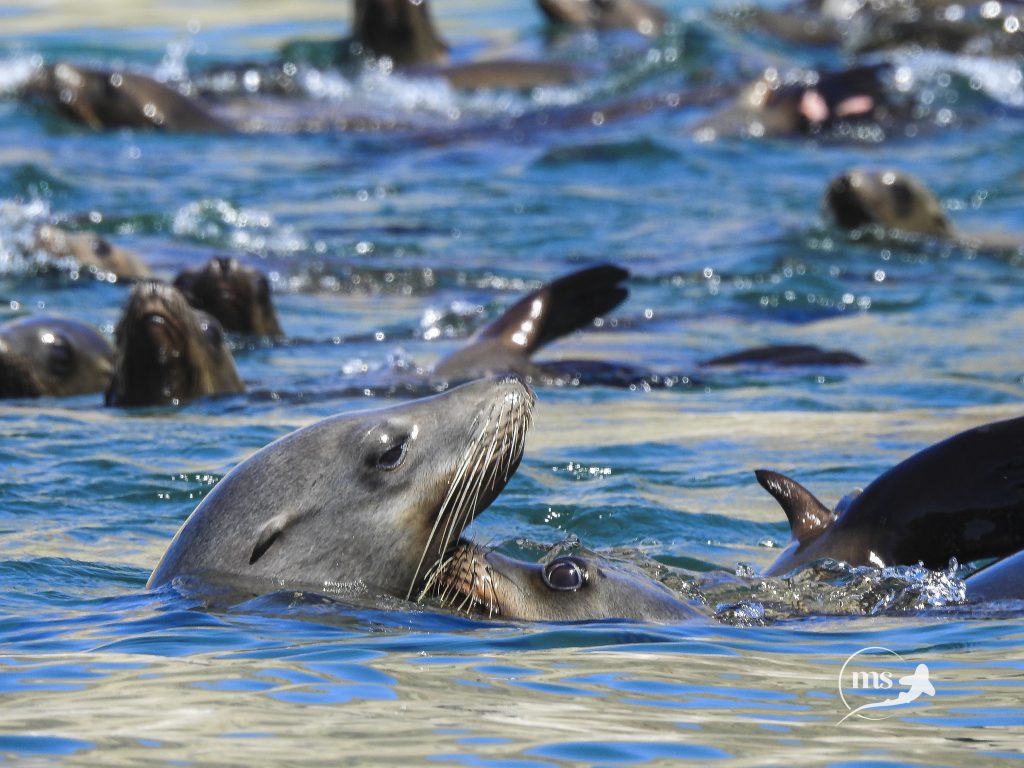
California sea lions (Zalophus californianus) are found on the West Coast of North America, ranging all the way from southeast Alaska to central Mexico. In Baja California, they can be found in multiple locations along the Sea of Cortez and in the Pacific Coast. These charismatic animals congregate in rocky spots where they form colonies, there are about 13 identified colonies in the Sea of Cortez.
California sea lions are sexually dimorphic: adult males are larger than females and have a thicker neck, they are dark brown and have a pronounced bump on the forehead called sagittal crest. Adult females are golden brown or blonde and way smaller. Juveniles of both sexes are brown as well, so it can be difficult to distinguish their sex.
Feedingmainly offshore in coastal areas, they eat squid and different fish species including anchovies, mackerel, and sardines. They are very social animals, and they use numerous vocalizations to communicate. Getting close to their area, you are always welcomed by an endless barking sound: a sea lion colony can be a very noisy place! Females and pups communicate using vocalizations that are unique to the female and pup. A female can locate her pup among hundreds of others by her pup’s vocalization.
In Espiritu Santo Archipelago, close to La Paz, located in a UNESCO Heritage Area, resides one of the biggest and healthiest colonies in this area. This colony had scientists puzzled for some time: while other nearby colonies were decreasing due to the reduction in local fish stocks, this one was thriving and growing! A scientific investigation discovered that these sea lions had learned to dive deeper and feed on deeper water fish than other sea lions. This means that at some point they adapted their feeding habits and their skills when their usual prey started to be scarce.
Sea lions are intelligent and very charismatic animals, and it’s a privilege to see them wild and free at our doorstep. They can be curious and very playful with humans, interacting with them can be great fun, they are surely the puppies of the sea.